Islamic State Killer Featured in Videos Is Identified as Mohammed Emwazi
He was dubbed "Jihadi John" before his real name was known, and as of Thursday, The Washington Post claimed that the killer from the Islamic State group who was prominently featured in recent beheading videos is Kuwaiti-born Londoner Mohammed Emwazi.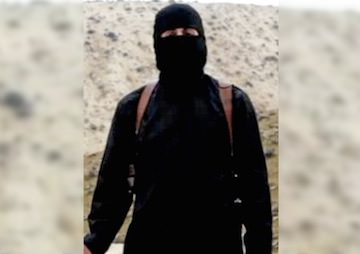 This video still shows the man identified by The Washington Post as Mohammed Emwazi. (BBC)
This video still shows the man identified by The Washington Post as Mohammed Emwazi. (BBC)
He was dubbed “Jihadi John” before his real name was known, and as of Thursday, The Washington Post claimed that the killer from the Islamic State group who was prominently featured in recent beheading videos is Kuwaiti-born Londoner Mohammed Emwazi.
The BBC also reported that day that Emwazi, who is said to be in his mid-20s and had worked as a computer programmer, is the black-clad man appearing in video clips that show the deaths of American journalists James Foley and Steven Sotloff, as well as British taxi driver Alan Henning, British aid worker David Haines, American aid worker Abdul-Rahman (Peter) Kassig and Japanese journalist Kenji Goto.
Both media sources traced his origins to a middle-class upbringing in west London and noted that Emwazi had been under surveillance by British officials for years. The Washington Post was able to interview sources who knew Emwazi personally and included their input in Thursday’s story:
“I have no doubt that Mohammed is Jihadi John,” said one of Emwazi’s close friends who identified him in an interview with The Washington Post. “He was like a brother to me. … I am sure it is him.”
A representative of a British human rights group who had been in contact with Emwazi before he left for Syria also said he believed Emwazi was Jihadi John, a moniker given to him by some of the hostages he once held.
“There was an extremely strong resemblance,” Asim Qureshi, research director at the rights group, CAGE, said when shown one of the videos and asked to confirm whether Emwazi could be “Jihadi John.”
“This is making me feel fairly certain that this is the same person,” Qureshi added.
Authorities have used a variety of investigative techniques, including voice analysis and interviews with former hostages, to try to identify Jihadi John. James B. Comey, the director of the FBI, said in September — only a month after the Briton was seen in a video killing American journalist James Foley — that officials believed they had succeeded.
So, although the Post’s big reveal is news to the public, members of the American and British government have known Emwazi’s identity since last fall. What’s more, the BBC also noted, British intelligence agency M15 “even tried to recruit him as an informer, years before he went off to Syria to eventually join Islamic State.”
He was on that agency’s radar since at least 2009, when M15 operatives reportedly stopped him in Amsterdam and accused him of having attempted to travel to Somalia to meet with jihadists while he was on vacation in Tanzania. Emwazi had just been detained by police in the Tanzanian city of Dar es Salaam before heading to Amsterdam.
By 2010, Emwazi, a graduate of England’s University of Westminster, had relocated to Kuwait, but his entanglements with British authorities continued (per the BBC):
Emwazi later moved to Kuwait, where he got a job at a computer company. But on a visit to London in 2010, he was detained by British counter-terrorism officials and prevented from flying back to Kuwait, his friends said.
“I had a job waiting for me and marriage to get started,” Emwazi wrote in a June 2010 email to Cage.
“[But now] I feel like a prisoner, only not in a cage, in London,” he added, “a person imprisoned and controlled by security service men, stopping me from living my new life in my birthplace and country, Kuwait.”
Mr. Qureshi said Emwazi had made persistent efforts to try to change his situation: “We had two-and-a-half years of communications talking about what he could do to alleviate his problems.”
He said he did not know what had happened to Emwazi, adding: “When we treat people as if they are outsiders they will inevitably feel like outsiders – our entire national security strategy for the last 13 years has only increased alienation. A narrative of injustice has taken root.”
–Posted by Kasia Anderson
Your support matters…Independent journalism is under threat and overshadowed by heavily funded mainstream media.
You can help level the playing field. Become a member.
Your tax-deductible contribution keeps us digging beneath the headlines to give you thought-provoking, investigative reporting and analysis that unearths what's really happening- without compromise.
Give today to support our courageous, independent journalists.

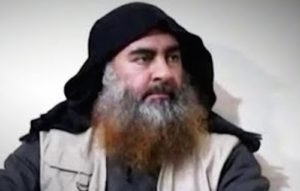
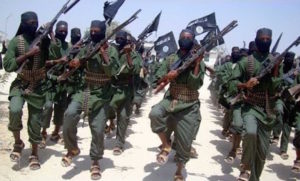

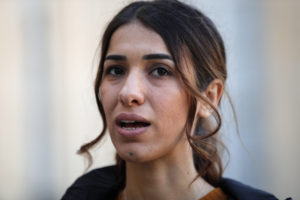
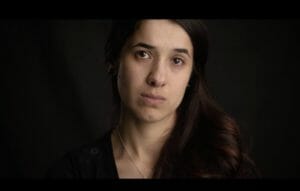
You need to be a supporter to comment.
There are currently no responses to this article.
Be the first to respond.